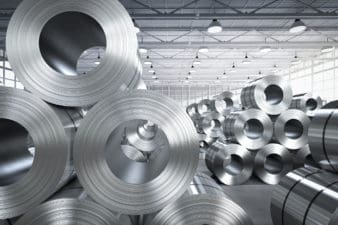Teck Resources Ltd. (TSX:TCK.B)(NYSE:TCK) has slashed its dividend by two-thirds as the company deals with weak commodity prices and higher expenses related to its Fort Hills oil sands project in Alberta. The cut, which reduces Teck’s semi-annual dividend payment to $0.15 per share from $0.45 per share and will save the company an estimated $340 million, was not unexpected. A number of energy-related companies have been forced to take various debt reduction measures in the wake of weaker commodity prices, such as reducing capital budgets, eliminating staff, and cutting dividends.
“Our industry continues to face difficult markets,” said Teck Chief Executive Don Lindsay in a conference call. “In general, the commodity market price environment has been weak. In the first quarter, steel-making coal prices fell further as the market continued to be oversupplied. Copper and zinc prices both dropped earlier in the quarter and average prices ended up being lower than in Q4.”
Still, Lindsay said shareholders have been mostly supportive of the dividend cut. “It preserves flexibility and the funding of our capital program,” he said. “And importantly, it helps maintain the strength of our balance sheet.” Lindsay says Teck’s year has been soft to date, mainly due to weakening demand for coal in China. Teck generates more than 40% of its revenue from coal.
In its first quarter, Teck’s profits declined and revenue slipped, missing analyst estimates. Q1 profits amounted to $68 million, or $0.12 per share, flat compared with the prior year. Adjusted profit was $64 million, or $0.11 per share, while revenue was $2.02 billion, down from $2.08 billion in Q1 2014. Analysts polled by Capital IQ expected EPS of $0.18 per share on revenue of $2.06 billion.
Still, Teck has plenty of cash in its coffers; it has $1.4 billion on its balance sheet. But the Fort Hills project has a $2.9 billion price tag, and Teck has spent $900 million to date, leaving $2 billion to be spent by the time the project goes into production, which is scheduled for 2017.
“We are continuing to focus on cost reductions and operating performance,” Lindsay said. “At the same time we are maintaining a strong financial position without any material change in our overall U.S. dollar debt level.”
Long-term investors will note that Teck’s business is cyclical, and that coal, zinc, and copper prices, Teck’s three main products, will bounce back in the future. In the meantime, Teck’s share price, currently about $15, might represent a buying opportunity for patient investors.





